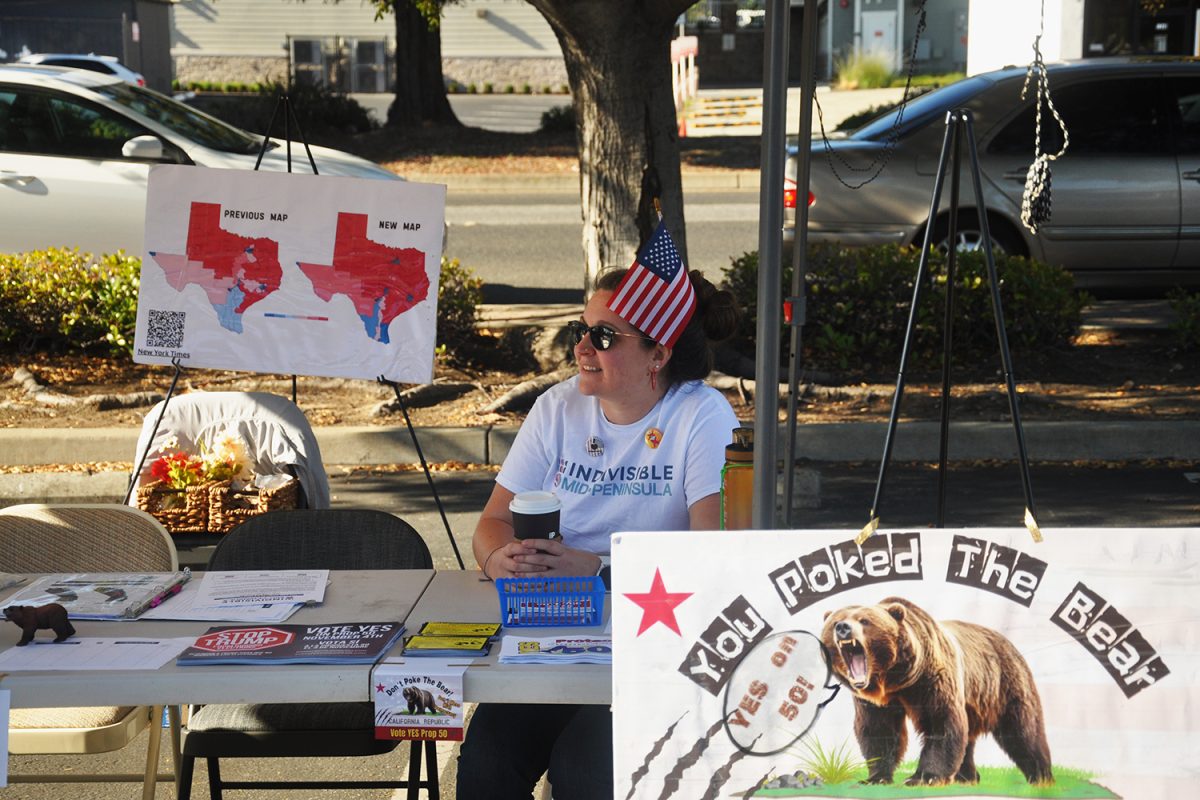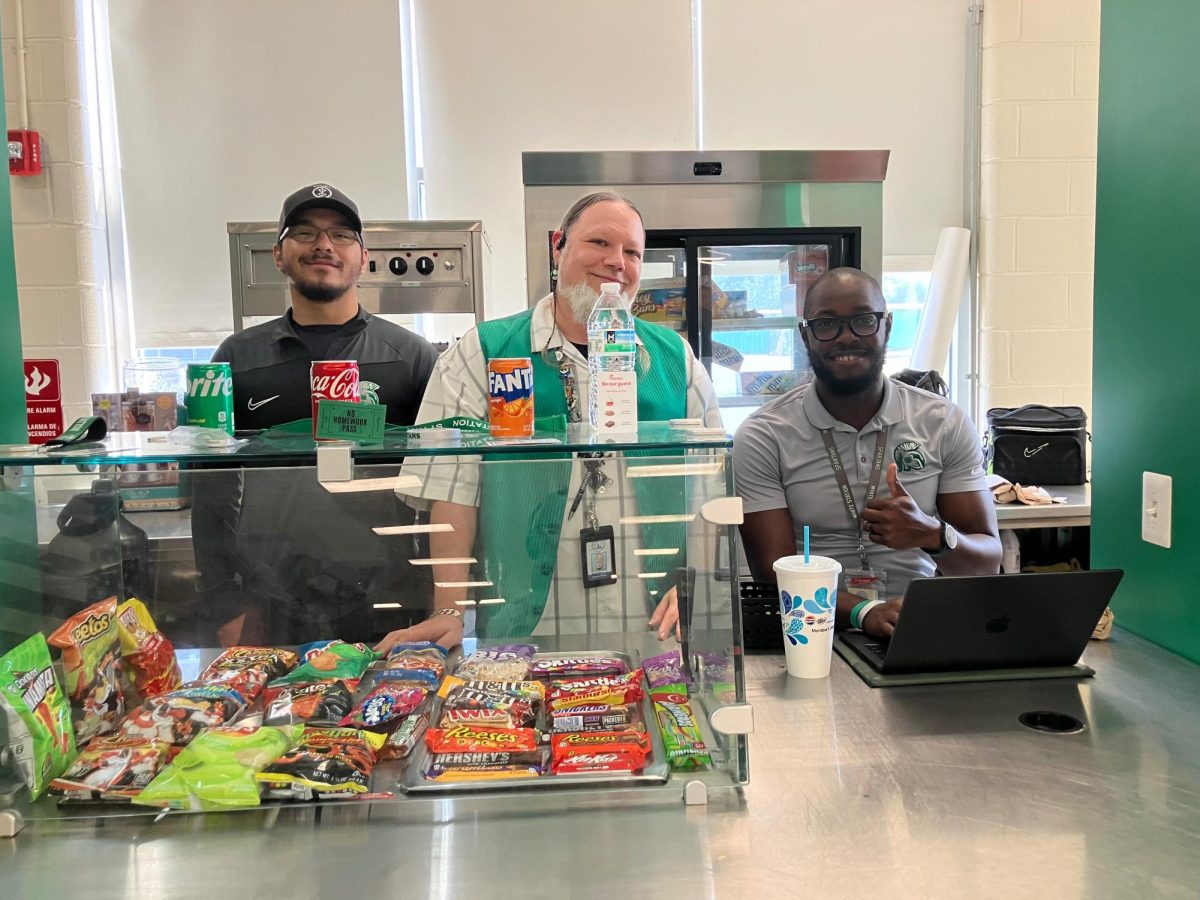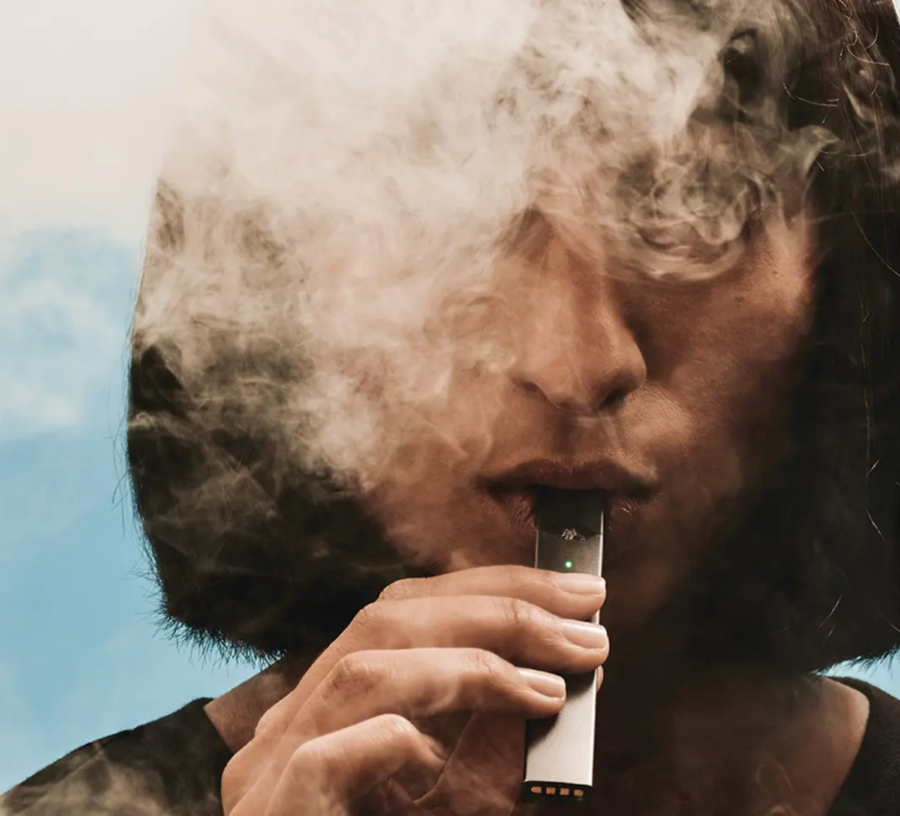The student source in this story will be referred to as Student A because he discusses his participation in an illegal activity.
A $462 million settlement between the leading e-cigarette company, Juul Labs, and several states last month after a barrage of unethical marketing accusations marked the largest settlement the company has faced thus far.
The settlement resolved over 5,000 lawsuits alleging that Juul did not provide customers with “accurate information about the products’ addictiveness and safety” and “unlawfully marketed [the products] to minors,” according to the Juul class action website. California alone will receive almost $200 million of the settlement, along with several other states including New York, Colorado, the District of Columbia, Illinois, Massachusetts and New Mexico.
Sutter Health Palo Alto Medical Foundation pulmonologist and Assistant Professor of Medicine at the City College of San Francisco (CCSF) Dr. Elizabeth Yu supports the pressure from the lawsuits, agreeing with the unethical implications and stating that they were clearly targeting youth. From a professional standpoint, Yu sees patients in her intensive care unit with problems resulting from smoking or vaping.
“I’m seeing more patients in the outpatient clinic who have [increased] lung issues and breathing issues like shortness of breath or cough, that are oftentimes attributed to whatever they’re smoking, and e-cigarettes [are] on that list,” Yu said.
Likewise, there has been a concerning rise in underage vaping in the past few years — a survey from the FDA found that in 2022, about one in 10 middle and high school students reported current usage of e-cigarettes. Yu attributes much of the issue to the targeted marketing highlighted by the lawsuit accusations.
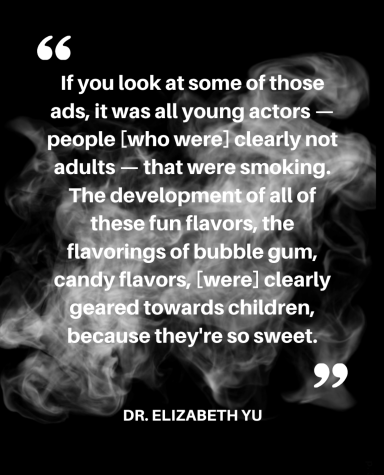
“If you look at some of those ads, it was all young actors — people [who were] clearly not adults — that were smoking,” Yu said. “The development of all of these fun flavors, the flavorings of bubble gum, candy flavors, [were] clearly geared towards children, because they’re so sweet.”
Science teacher Kyle Jones says the sweet flavors might not have been “directly marketed to kids,” but believes that the case is an effort to completely prohibit the advertising of e-cigarettes to a younger audience. Although Jones mostly sides with the implications of the lawsuits he explains that the flavors, though commonly enjoyed by children, could also be desirable for adults as well.
“I don’t like this idea that sweet flavors are only things that kids enjoy,” Jones said. “That’s a little bit incorrect. I understand that it would be more alluring to kids, but at the same time, is it fair that you basically tell a company that they can’t increase their marketability towards a variety of people with different tastes, just because there is also an overlap with things children like?”
Yu acknowledges that adults also find sweet flavors such as the candy flavors enjoyable, but still maintains that they should not be produced. She also says that many teenagers underestimate the risks of vaping and overestimate the popularity of vaping, which contributes to the problem. Student A, a senior at MVHS who has personally vaped a few times, believes that MVHS has “a lot more [students vaping] than we probably see,” yet the people who typically do it “keep it under wraps.”
“Honestly, [vaping] is overrated,” Student A said. “It’s not that great. You’re not missing out. It’s just addictive as f—. I’ve tried it a few times. I don’t think it’s that special or great or anything.”
Student A attributes underage vaping to accessible online purchases and e-cigarette employees not checking customer IDs and “selling through the back.” Yu echoes Student A’s sentiment, saying the monetary benefit from selling the products can outweigh incentives to enforce the laws.
“Even though a lot of states have imposed minimum age requirements to purchase these products, they’re very hard to enforce,” Yu said. “If you ask a small business owner, they’re incentivized to sell their product, and so those minimum age requirements are not regularly enforced. And if people want to get [it], same as with underage drinking, if there are teenagers who want to get their hands on something, they’re going to get their hands on it somehow.”
Yu also cautions her patients who would like to try vaping of the dangers of unregulated nicotine amounts in the e-cigarettes. She cautions them of the consequences that could accompany the choice.
“You’re inhaling a lot of nicotine in these e-cigarettes, [because it’s] not controlled,” Yu said. “How much nicotine you’re going to get in each puff is highly dependent on how deep of an inhale you take, and the cartridge itself is not regulated. So if you get a huge burst of nicotine, you can develop a really fast heart rate and people feel that can be very uncomfortable. In that setting, [it] can increase your blood pressure.”
Student A agrees, saying that unlike cigarettes, the long term effects of vaping are uncertain because it is a “fairly new thing.” He believes more research is needed in order to gather a deeper understanding of its consequences.
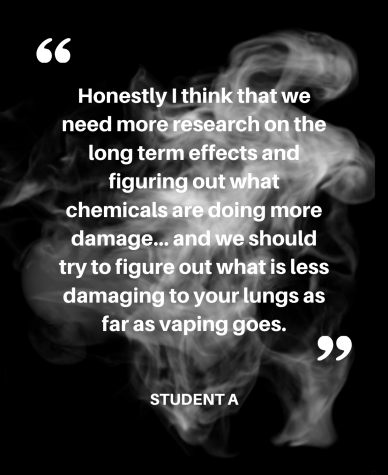
“Honestly, I think that we need more research on the long term effects and figuring out what chemicals are doing more damage, obviously things like formaldehyde and metal and vegetable oil and stuff that’s in the vapes gets into your lungs — obviously that’s bad,” Student A said. “And we should try to figure out what is less damaging to your lungs as far as vaping goes.”
Ultimately, Yu recognizes that adults will make their own decisions but feels teenagers should still be protected from the directed advertising by e-cigarette companies such as Juul. To solve the increase of teenage vaping, she highlights the importance of education.
“If you’re an adult, you’re allowed to make your own choice — even if they’re bad choices, you’re allowed to make them [since] it’s your body,” Yu said. “It’s harder with teenagers because for children, they’re much more impressionable, and they’re still developing. And in that more vulnerable time, it doesn’t seem right to me to push products that could be potentially harmful. I think the companies that intentionally [do] that should be penalized as they are, but moving forward, it’s more about properly educating children and adults about the potential risks and letting people make their own decisions about it when they’re adults.”
This story was originally published on El Estoque on May 26, 2023.





